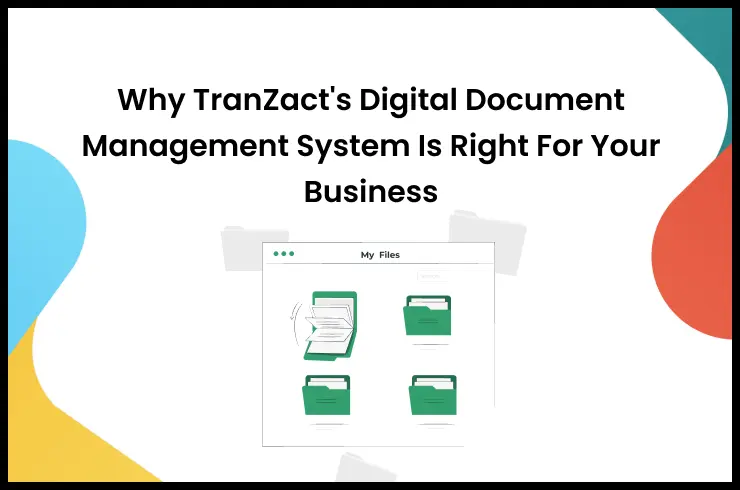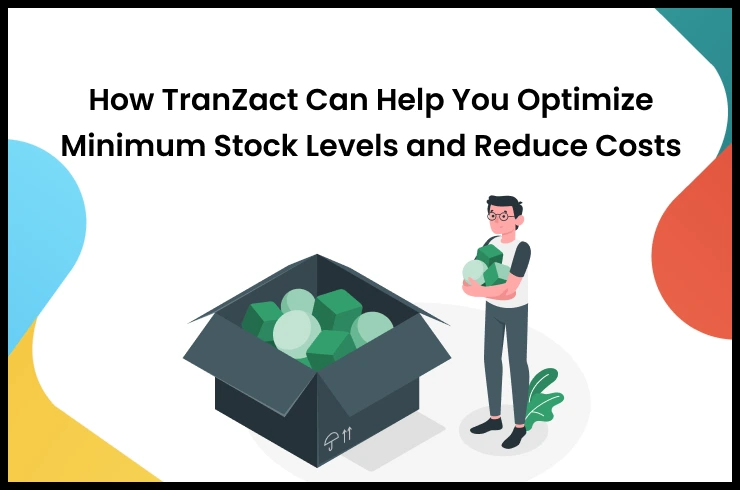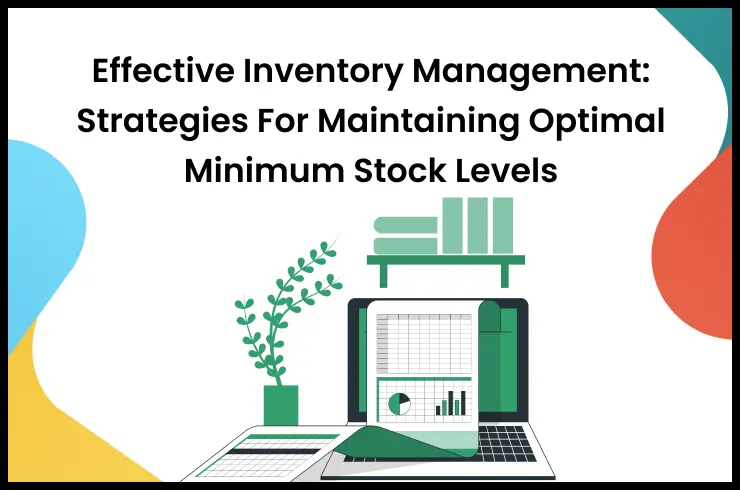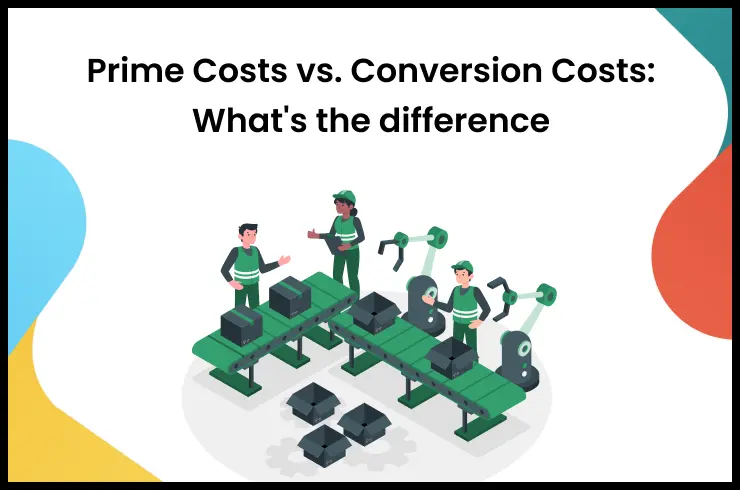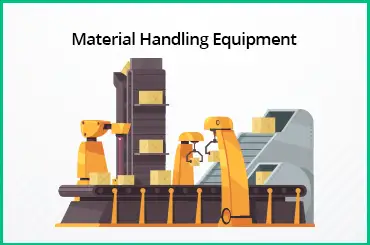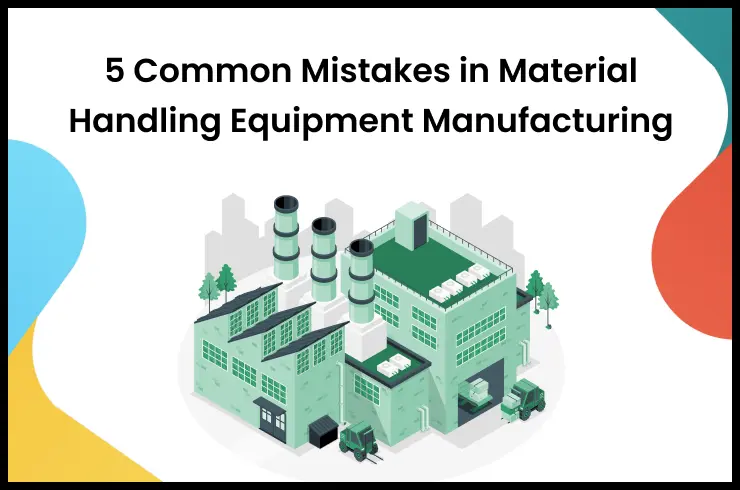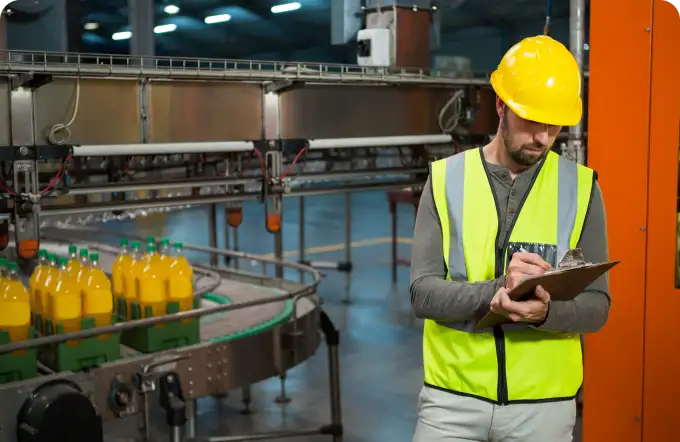Industrial IoT (IIoT) is changing industries worldwide. Warehouse automation uses smart sensors, devices, and connections in industries to improve processes.
What Is Industrial IoT (IIoT)?
Industrial IoT (IIoT) is the use of Internet of Things (IoT) technology in industrial places.
Warehouse automation:
- Uses sensors, devices, and connectivity.
- They collect and share data to make processes better.
- It helps industries work more efficiently.
- It boosts productivity in industrial sectors.
IIoT enables:
- IIoT connects and talks to different parts of industrial infrastructure
- Industrial IoT solutions use data analytics and real-time insights.
- IIoT helps make smart decisions and predicts when maintenance is needed.
- It also lets us monitor things from far away.
How Does IIoT Work?
IIoT has become important for industries to stay competitive and adapt to future demands. Let us understand how it works.
1. Devices and Sensors
To use industrial IoT there are IoT-enabled devices available. These devices have sensors that capture different types of data, such as:
- Temperature
- Pressure
- Vibration
- Production metrics.
2. Data Collection
After the IoT-enabled devices are connected to the machinery, the sensors in the devices collect data in real-time.
3. Connectivity
The collected data from IoT devices is sent through a network to a system where it can be stored.
4. Data Storage and Processing
The sent data is stored locally within the secured devices or in a connected cloud-based platform.
Read Also: What Is Professional Services Automation? The Beginner's Guide To PSA
Why Should Organizations Consider Adopting Industrial IoT?
Organizations should adopt Industrial IoT because it helps them make better decisions and predict when to do maintenance. Let us understand it in detail.
1. Operational Efficiency
- IIoT helps operations by showing what's happening in industrial processes.
- Organizations can use data-driven insights to decide what to do to make things better.
- It makes efficiency improve as they can take smart decisions.
2. Cost Reduction
- IIoT helps save money by knowing when to do maintenance.
- Organizations can plan when to fix things, so they don't waste money on sudden repairs.
- They can do this by always checking how well the equipment works and finding problems early.
3. Quality Control
Industrial IoT helps real-time observation of product quality. This helps in early mistake detection in production, reducing waste and improving customer satisfaction.
Read Also: What Is Inventory Management System?
How Is Industrial IoT Different From Other Types Of IoT?
There are many different types of IoTs:
1. Consumer IoT
2. Healthcare IoT
3. Smart Home IoT
4. Agricultural IoT
5. Transportation IoT
Let us see how industrial IoT is different:
1. Scale
IIoT often involves connecting numerous devices, sensors, and systems within an industrial setting, like a factory floor, utility grid, or supply chain.
2. Connectivity
Industrial IoT is trustable and it has secure connectivity.
3. Data Complexity
IIoT handles complicated data in industries by using sensors and devices.
Major Considerations For Adopting IIoT
Before using IIoT (Industrial Internet of Things), there are important things to think about. These factors will help make sure IIoT works well and gives good results.
1. Clear Business Goals
Define specific business goals and results that IIoT uses aims to achieve. Doing this helps make sure IIoT fits with the goals of the organization.
2. Data Security
Put strong security measures in place to keep data safe when needed. This includes secure:
- Device authentication
- Data encryption
- Access controls.
3. Connectivity Reliability
Evaluate connectivity options, such as wired or wireless networks, based on the specific requirements of the industrial environment.
4. Data Analytics and Insights
Check how the data collected will be studied and used to get helpful insights. Use appropriate tools and techniques to analyze the data and find useful information.
Which Industries Are Using IIoT?
IIot is beneficial for a lot of industries. The industries which use II are:
1. Manufacturing
IoT in manufacturing industry is used for real-time observation of production lines, quality control, and supply chain improvement.
2. Energy and Utilities
The energy sector uses Industrial IoT for remote monitoring of power plants and distribution systems and energy efficiency.
3. Transportation and Logistics
IoT in the automotive industry is employed in management, logistics improvement, real-time tracking of shipments, and predictive maintenance for vehicles.
4. Healthcare
Industrial IoT applications in healthcare include remote patient monitoring, asset tracking in hospitals, efficient inventory management, and optimizing healthcare workflows.
The Role Of IT In Industrial IoT
The role of IT in industrial IoT are:
1. Infrastructure Setup
IT professionals design and set up structures for IoT deployments, ensuring reliable connectivity, data storage, and strong communication protocols.
2. Data Management
IT connects with existing systems for decision-making.
3. Cybersecurity
IT professionals make sure IIoT system security through access controls, encryption, intrusion detection, and regular audits to protect devices and networks.
4. Device Management
IT manages IoT devices, making them ready to use, adjusting settings, and maintenance throughout their lifecycle.
5. Analytics and Insights
IT professionals develop analytics tools and create dashboards or reports for data presentation.
What Is The Difference Between IoT And IIoT?
IoT and IIoT are both about connecting devices to the internet, but they are used in different areas. Let's see how they are different.
1. Scope
IIoT or IoT industrial automation is the technology within industrial settings. It involves:
- Connecting industrial machinery
- Systems to optimize processes
- Operational efficiency.
2. Applications
Industrial IoT applications are found in different consumer-centered domains for individuals.
IIoT, on the other hand, is mostly used in industrial sectors to address specific challenges and requirements.
3. Focus on Industrial Considerations
Industrial IoT focuses on industrial matters more than IoT. This includes factors such as
- Large-scale operations
- Safety regulations
- Connectivity assurance
IoT is for everyday things like phones and gadgets, but IIoT is for industries like factories and transportation. IIoT helps industries be more efficient and productive. It's like a special version of IoT just for businesses.
What Are IIoT Applications And Examples?
IIoT applications use smart devices and data analysis to make industries better and more efficient. Let us get to know more in detail.
1. Predictive Maintenance
Industrial IoT enables real-time monitoring of equipment and machinery. Collecting data on measures like
- Temperature
- Vibration
- Performance.
2. Remote Monitoring and Control
IIoT helps watch and control machines from far away. For example, operators can change settings or check temperatures from a central place, even if they are not nearby.
3. Energy Management
Industrial IoT helps industries save energy and resources.
4. Quality Control
Industrial IoT helps real-time observation and quality control in manufacturing processes. Sensors and cameras can:
- Detect defects
- Measure product parameters
- Make machines do things automatically.
Who Are IIoT Vendors?
IIoT vendors are companies that create special things for the Industrial Internet of Things.
1. Hardware Manufacturers
IIoT vendors are companies that make special devices, like sensors and equipment, that can be used for IoT. They create things that help industries use IoT technology.
2. Software Providers
Companies that develop software platforms, analytics tools, and connectivity solutions for IIoT applications.
3. System Integrators
Organizations that specialize in integrating different components of IIoT systems, including
- Hardware
- Software
- Network structure
What is the Future of IIoT?
The future of IIoT (Industrial Internet of Things) looks bright, with many developments:
-
Growth: IIoT will grow fast as more industries use smart tech to work better.
-
Connected Devices: Machines will talk more, and share data easily.
-
Data Analysis: Smart data analysis will help industries find useful info from IIoT data.
-
Less Downtime: IIoT will predict issues before they happen, saving time and money.
-
Automation: More automation means work gets done faster, and fewer humans are needed for repetitive tasks.
Power Of Industrial IoT using TranZact
Industrial IoT (IIoT) changes industries by helping real-time data collection, analysis, and intelligent decision-making. Consider TranZact, a cloud-based inventory management software designed for Indian SMEs.
TranZact offers solutions for tracking inventory, managing orders, handling GST billing, and overseeing warehouses. Key features include:
- Batch tracking
- Order management
- Store management
- Barcode scanning
FAQs On IIoT
1. How does Industrial IoT (IIoT) benefit businesses?
IIoT improves operational efficiency, enables predictive maintenance, enhances safety measures, optimizes resource utilization, and drives innovation.
2. Is Industrial IoT (IIoT) secure?
Yes, Industrial IoT (IIoT) can be secure, but it depends on how well it is set up and protected.
3. Can existing industrial systems be integrated with Industrial IoT (IIoT)?
Yes, IIoT can be integrated with existing systems such as SCADA or MES to help smooth data exchange process management.
4. How does Industrial IoT (IIoT) enable predictive maintenance?
IIoT monitors equipment conditions in real-time, collects data, and uses analytics to predict maintenance needs and avoid costly breakdowns.
5. What are the challenges of implementing Industrial IoT (IIoT)?
Challenges include expandability, data security, selecting the right devices, and ensuring compatibility with existing infrastructure.
6. How can organizations start with Industrial IoT (IIoT) adoption?
To start, organizations should set clear goals. Then, they should check what tools they need and choose the right partners.







